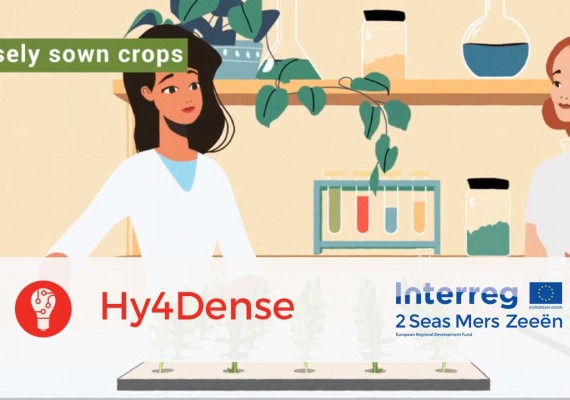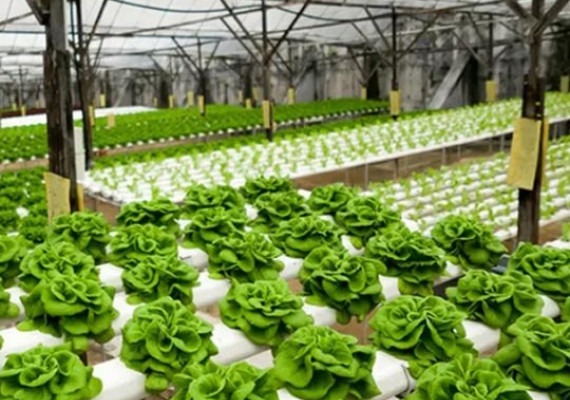Hy4Dense
Developing hydroponic systems for vegetables sown at high density
Priority Axis
Technological and Social InnovationSpecific objective
Technological Innovation
Lead partner
InagroContact
Start Date
01/02/2019End Date
31/03/2023Project budget
2 672 473 €ERDF amount
1 603 484 €ERDF rate
60%About
Common challenge
Densely sown crops (including lamb’s lettuce, rocket, spinach, watercress) are important for the local economy in the 2 Seas area. In 2015, 2815 tons of lamb's lettuce (€7 million production value) were produced in Belgium. In 2016 the UK produced 2,400 tons watercress (£14,5 million) and 9,000 tons baby-leaf (£3,3 million). They form a growing component of packaged salad vegetables with retailers reporting a significant increase in annual sales. The 2 Seas Programme area has a strong focus on stimulating sustainable, resource-efficient production through technological improvement. Innovative production improvements by growers by the introduction of novel hydroponic cultivation systems offered great potential to produce high-quality crops with reduced environmental impact. Hydroponics benefits growers by increased productivity, by improved efficient management of crop cultivation while controlling diseases that influence yield and revenue. More than 90% of greenhouse cultivation of fruit vegetables had shifted to hydroponics; leafy vegetables grown at a low plant density (e.g. lettuce) were also starting to implement systems. However, no straightforward solutions were available for vegetable crops traditionally densely sown in rows in the field. Hy4Dense partners rose to this challenge by investing in a novel hydroponic system developed in co-creation with the stakeholders and adequate technology transfer to adapt skills for implementation.
Overall objective
Main outputs
Cross border approach
Main Achievements
Growers of leafy crops in soil in the 2 Seas area have been facing more production losses in recent years, caused by soil-borne diseases and fungi. This is no different in growing densely sown crops. But switching to hydroponics is not proving evident. With the development of a hydroponic system for densely sown crops, Hy4Dense removed a major obstacle.
The switch from soil cultivation to hydroponics in densely sown crops was delayed because there are few efficient systems on the market for high sowing densities.
The partners of the Hy4Dense project wanted to change this: they developed a new, substrate-free hydroponic system for growing lamb's lettuce, rocket salad and spinach. Cross-border cooperation was central in the project. The project partners in Belgium, the Netherlands and the UK regularly brought together growers, researchers, designers, constructors, seed houses and processors to co-design the system. Four different pilot systems were designed. They are all variants of the basic DFT system with the custom designed Hy4Dense float. Cultivation options were thus explored according to growers' techno-economic capabilities. These included germination and growth phase in separate basin, growth chamber with misting system and plastic tunnels.
One of the key factors contributing to this is the use of lighting, which can be SON-T lighting or LED lighting. It was therefore interesting to also explore the possibilities around lighting for this new hydroponic crop in the Hy4Dense project. Project partner University of Essex tested different light regimes and light spectra to see what effect this has on densely sown crops.
Before growers are switching, they want to know how to grow on such a system and whether it is a viable system. A grower’s guide was written, and a techno-economic social feasibility study was therefore carried out. This showed that automation plays a big role in whether the system is profitable or not.
Testimonial
“One of our greatest sources of pride and accomplishment was the feedback we received from the growers themselves. They emphasized the need for a hydroponic solution to cultivate spinach and lamb's lettuce, encouraging us to continue our research.”


